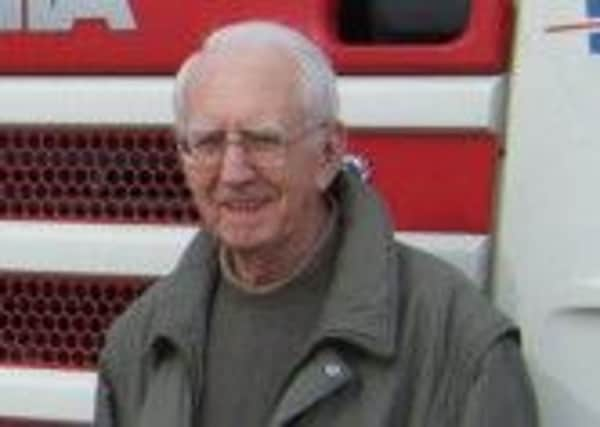Obituary: William David Campbell, architect


Bill Campbell was born in India and came to Scotland aged four to be reared by his maternal grandmother in Stenton, East Lothian, where he attended primary school. He went on to Dollar Academy, where he completed his education as dux of the school.
After graduating from the School of Architecture at the Edinburgh College of Art, and following a brief spell in Northern Rhodesia (now Zambia), he completed two years of national service before returning to Edinburgh in 1957 to work in Regent Terrace in the fledgling practice of Robert Matthew, where I again encountered him.
Advertisement
Hide AdAdvertisement
Hide AdThe office was staffed by a kenspeckle collection of colourful characters and was the launchpad for a number of young practices which, in 1962, included Campbell and myself.
Bill bought and restored the 17th-century Kinloch House in Haddington, living on the top floors above the office. The early years there were rich, varied, chaotic and fun. We all worked hard and played hard, embracing William Campbell’s belief that balance was all-important and work should not interfere with picnics in summer or sledging in winter.
When the growth of the practice led to the office moving to Edinburgh in the late 1960s, the pleasure principle remained in place and no excuse for a party was ever willingly overlooked.
In the early 1970s, Bill resumed a student career when he went to Edinburgh University to study planning. After graduating he worked in Leicester and Hampshire before returning to Scotland to join the Scottish Office Inquiry Reporters Unit, then expanding to cope with oil-related development pressures around Aberdeen. Bill took on a lot of this work as well as listed building and architectural cases. He was much in demand for training and mentoring newly appointed Reporters, due to his expertise, fine writing skills and command of English grammar.
Among the major cases he undertook were a large retail complex at Newhouse and a proposal to carry out investigative drilling in the Galloway hills to ascertain the suitability of the geology for storing spent nuclear fuel.
The very high standard of his work led to his eventual promotion to Deputy Chief Reporter. He is remembered among colleagues for his professionalism, courtesy and humour.
Following his retirement he became involved with many public bodies, among them the Royal Fine Art Commission, the Cockburn Association and the Saltire Society.
But there was much more to William Campbell than simply two successful careers. That bare-bones description presents the skeleton without the flesh. Blessed with a keen, enquiring mind and prodigious powers of information retention and retrieval, his curiosity was boundless. He was enormously well-read, and his library grew to cover several walls, reflecting the great range of his interests.
Advertisement
Hide AdAdvertisement
Hide AdAs a genealogist he explored the outermost branches of his family tree worldwide, which allowed him to indulge in one of his favourite games – informing a complete stranger that they were related. In later life, however, that sometimes rebounded when the next back-packing generation from overseas descended upon him with little warning, seeking a base and, sometimes, a laundry. They were never refused hospitality and were never evicted.
He was, himself, an inveterate traveller, enjoying serious walking tours all over Europe, indulging his love of flowers and plants and small group trips to unlikely destinations – Albania during Enver Hoxha’s regime comes to mind.
Although he normally wore his erudition lightly he could be the scourge of ill-prepared tour guides, while he studied his fellow travellers closely and returned with as many pithy comments on his companions as on the places he had seen. He had a keen eye for pomposity and self-importance and delighted in puncturing both.
The range of his learning equipped him to teach and, in his national service stint, the army for once fitted the man to the role by making him a Sergeant in the Royal Army Educational Corps where his communication skills developed to a high degree which he employed to great effect all his life. In the first years of the practice he was an inspirational teacher at the School of Architecture and stayed in contact with many former students through their careers.
He was a wonderful host and an accomplished cook. His love of food and wine made it a pleasure to return his hospitality, provided always that the standards were kept high. These were the standards he set for himself and when he failed he was the first to admit it. Indeed, some of the keenest of his dry wit was reserved for stories against himself – the raciest and funniest of which must remain on restricted circulation.
Bill Campbell was a polymath, the nearest thing to a Renaissance man the 20th century would allow. He enriched those he touched, was an entertaining companion and a loyal friend.
To have known him is a privilege, to have worked together is an honour but there has been no greater enjoyment than sharing his close friendship for so many years.